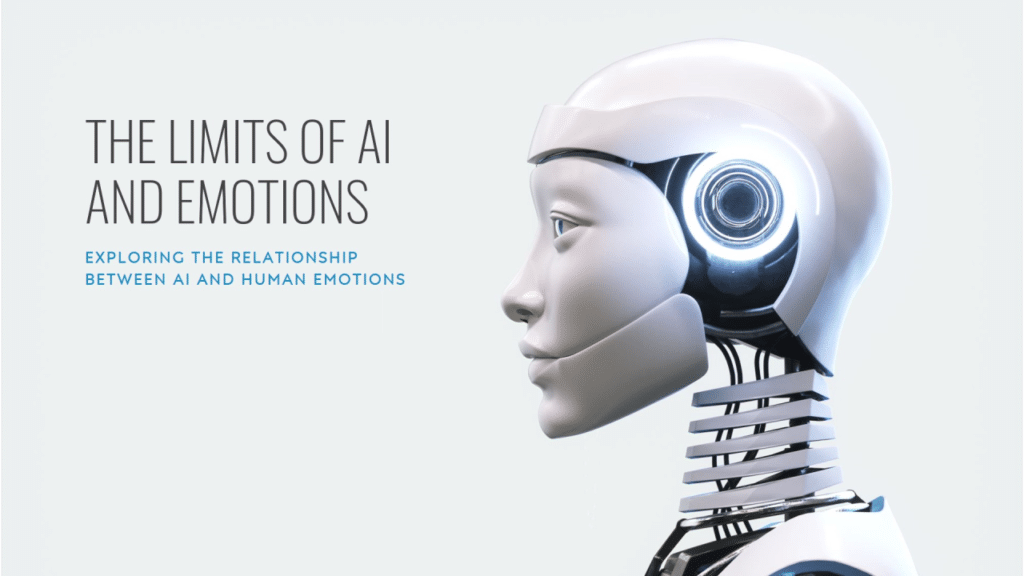Artificial Intelligence (AI) has made remarkable strides in recent years, from outperforming humans in complex games to driving cars autonomously. One of the most intriguing and debated aspects of AI is its ability to understand and interpret human emotions. This capability, often referred to as affective computing or emotional AI, aims to bridge the gap between human emotional intelligence and machine learning. But can AI truly understand human emotions, or is it merely simulating understanding?
The Fundamentals of Emotional AI
Emotional AI is designed to recognize, interpret, and respond to human emotions in a manner that appears empathetic. This technology utilizes various methods to achieve this:
- Facial Recognition: Analyzing facial expressions using computer vision to determine emotions.
- Voice Analysis: Assessing tone, pitch, and speed of speech to infer emotional states.
- Text Analysis: Using natural language processing (NLP) to analyze the sentiment in written or spoken language.
- Physiological Monitoring: Measuring physiological signals such as heart rate, skin conductance, and eye movements to gauge emotional states.
Real-World Applications
The applications of emotional AI are vast and varied, impacting numerous fields:
- Customer Service: AI-powered chatbots and virtual assistants can detect customer frustration or satisfaction and respond accordingly, improving customer experience.
- Healthcare: Emotional AI can assist in diagnosing mental health conditions by analyzing patient emotions and behaviors over time.
- Education: AI systems can adapt to students’ emotional states, providing a more personalized learning experience.
- Marketing: Advertisers can use emotional AI to gauge consumer reactions to products or campaigns, tailoring marketing strategies for better engagement.
Examples of Emotional AI in Action
Affectiva
Affectiva, a pioneer in emotional AI, has developed software that can analyze facial expressions and voice to detect emotions. Used extensively in market research, Affectiva’s technology helps brands understand consumer reactions to advertisements, enabling more emotionally resonant campaigns.
Cogito
Cogito employs emotional AI in call centers to analyze the voice patterns of both agents and customers in real-time. This technology provides agents with feedback on their emotional tone, helping them adjust their approach to enhance customer satisfaction and empathy.
The Limitations of Emotional AI
While the advancements in emotional AI are impressive, there are significant limitations and ethical considerations:
- Contextual Understanding: Emotions are deeply tied to context, and AI often lacks the nuanced understanding required to interpret emotions accurately in diverse situations.
- Cultural Sensitivity: Emotional expressions can vary significantly across cultures, posing challenges for AI trained on data from specific demographic groups.
- Privacy Concerns: The use of emotional AI raises privacy issues, particularly when analyzing personal data without explicit consent.
- Ethical Implications: The deployment of emotional AI in surveillance or manipulation of emotions can lead to ethical dilemmas, such as the potential for misuse in influencing public opinion or behavior.
The Debate: Can AI Truly Understand Emotions?
At the heart of the debate lies the question of what it means to “understand” emotions. Understanding human emotions involves not just recognizing signals but also empathizing and responding in a contextually appropriate manner.
Arguments for AI Understanding Emotions
- Pattern Recognition: Proponents argue that by recognizing patterns in facial expressions, voice, and text, AI can effectively interpret and respond to emotions, simulating an understanding.
- Learning and Adaptation: Through machine learning, AI systems can improve their emotional recognition and responses over time, adapting to individual preferences and behaviors.
Arguments Against AI Understanding Emotions
- Lack of Consciousness: Critics contend that AI lacks consciousness and subjective experience, making true understanding of emotions impossible. AI can mimic emotional responses but does not feel emotions.
- Deep Contextual Insight: Understanding emotions requires a deep contextual insight that AI currently lacks. Human emotions are influenced by a myriad of factors, including past experiences and cultural background, which AI cannot fully grasp.
Future Prospects and Challenges
The future of emotional AI holds both promise and challenges. Advances in deep learning and neural networks could enhance AI’s ability to interpret emotions more accurately. However, addressing the ethical and privacy concerns will be paramount to ensure responsible use of this technology.
Enhancing Emotional Intelligence in AI
- Improved Data Diversity: Training AI on diverse datasets can help improve its understanding of emotional expressions across different cultures and contexts.
- Ethical Guidelines: Establishing clear ethical guidelines and regulations for the use of emotional AI can mitigate privacy and misuse concerns.
- Human-AI Collaboration: Rather than replacing human emotional intelligence, AI can augment it, assisting humans in areas where emotional analysis is beneficial, such as mental health support and customer service.
Conclusion
The quest to create AI that can truly understand human emotions is ongoing and fraught with both potential and pitfalls. While AI can recognize and respond to emotional signals, it lacks the subjective experience and deep contextual understanding that characterize true emotional intelligence. As we continue to develop and integrate emotional AI into various domains, it is crucial to balance technological advancements with ethical considerations, ensuring that this powerful tool is used to enhance human well-being rather than undermine it.
As we navigate the evolving landscape of emotional AI, it’s essential for technologists, ethicists, and policymakers to collaborate in shaping a future where AI enhances human emotional intelligence responsibly. Stay informed, engage in discussions, and advocate for ethical practices in AI development and deployment. Join the conversation on how we can harness the power of emotional AI for the greater good, ensuring that this technology serves humanity with empathy and integrity.
